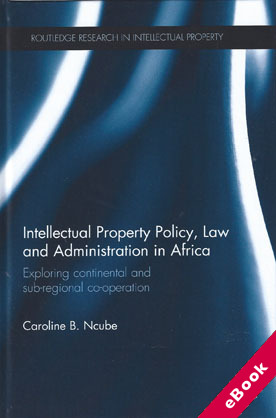
The device(s) you use to access the eBook content must be authorized with an Adobe ID before you download the product otherwise it will fail to register correctly.
For further information see https://www.wildy.com/ebook-formats
Once the order is confirmed an automated e-mail will be sent to you to allow you to download the eBook.
All eBooks are supplied firm sale and cannot be returned. If you believe there is a fault with your eBook then contact us on ebooks@wildy.com and we will help in resolving the issue. This does not affect your statutory rights.
This book examines the harmonisation of Intellectual Property (IP) policy, law and administration in Africa.
Two recent developments have brought this topic to the fore. The first is the apparent escalation of long-standing efforts to establish a Pan-African Intellectual Property Organisation (PAIPO), a continental initiative.
The second is the current regional attempt to operationalise the IP provisions of the Southern African Development Community (SADC)’s Protocol on Trade (articles 9b and 24) and its Protocol on Science, Technology and Innovation (article 2m).
Intellectual Property Policy, Law and Administration in Africa discusses the viability of such initiatives with particular reference to the current socio-economic status of Africa’s nations. With a view to contributing to future developments in Africa at both a continental and regional level, the author considers this issue through the lens of advancing the public interest in IP and asks whether harmonisation efforts would be beneficial to IP creators, users and society generally.
Through the course of the book, Ncube urges due consideration of individual states’ unique conditions and aspirations in any harmonisation venture, a necessity outlined in article 7 of the Agreement on Trade Related Aspects of Intellectual Property Rights.
This book will be of great relevance to scholars and policy makers with an interest in IP law and African law in general.